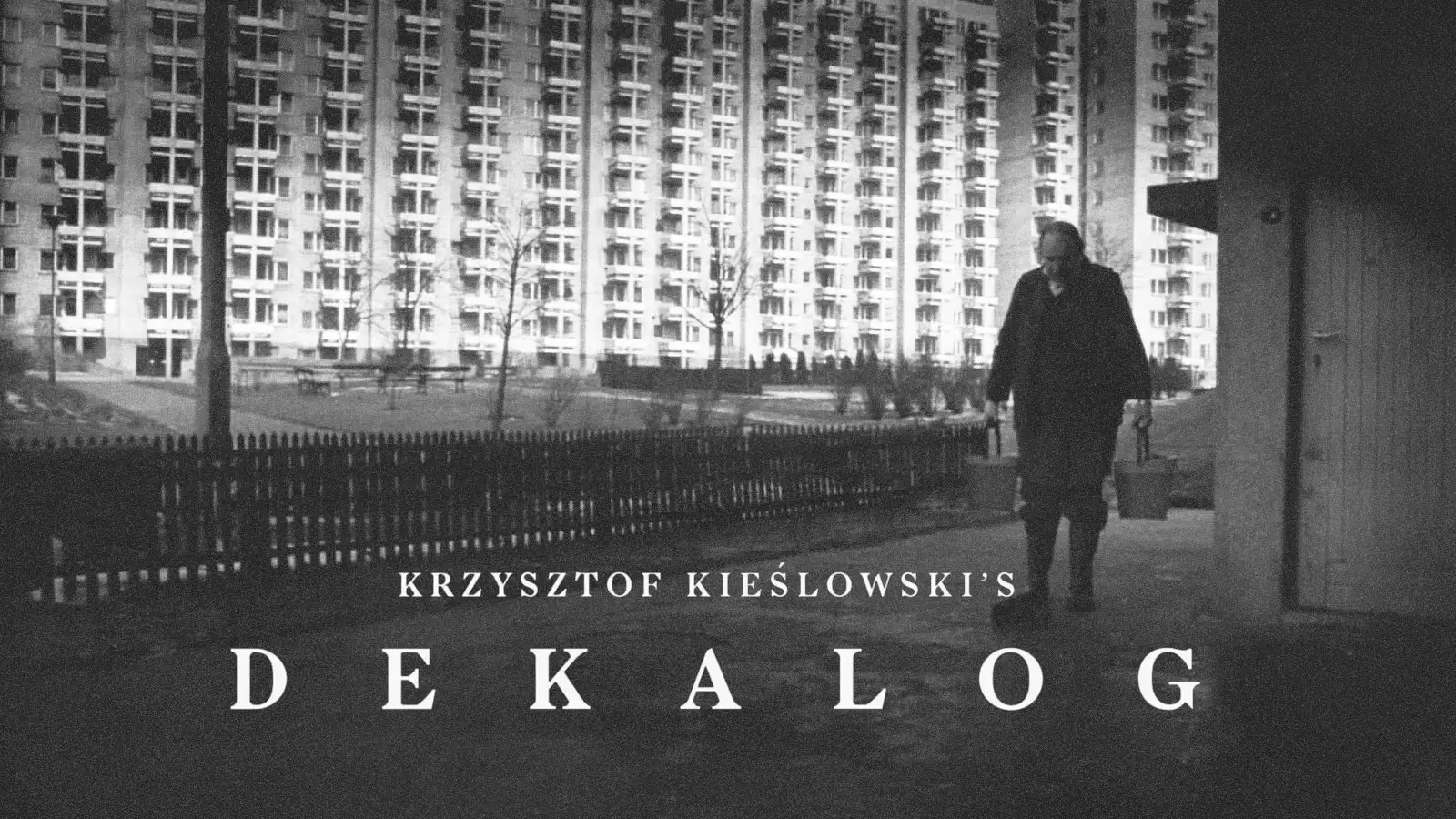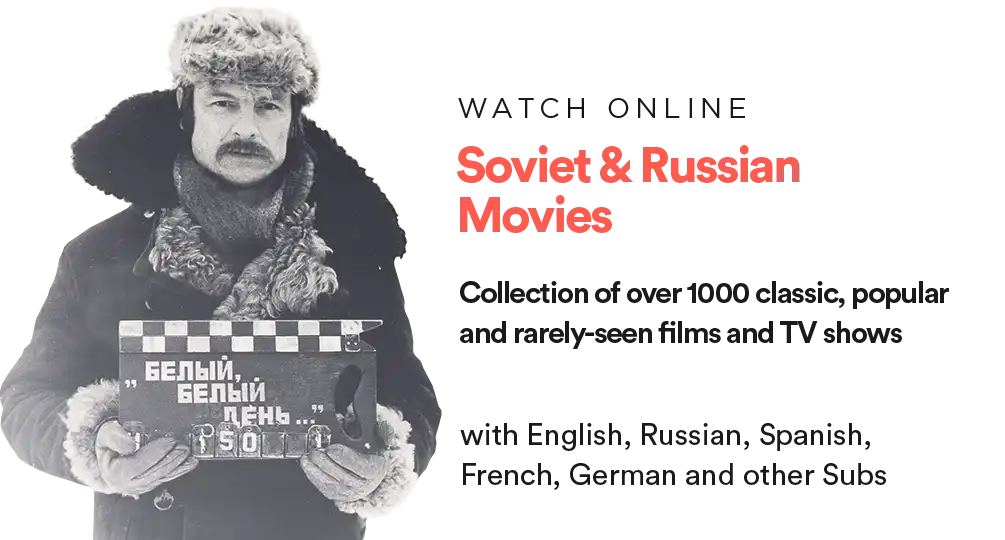Dekalog: A Cinematic Testament to the Human Spirit
29.09.2023

“Dekalog” is a series of ten films, each bearing an evocative and profound narrative, crafted by the remarkable Polish director Krzysztof Kieślowski. Each film, while connected through themes and settings, is distinct, narrating unique tales inspired by the Ten Commandments. The films were created in the late 1980s, a time when Poland was transitioning from communism to a democratic form of government, imbuing each film with a plethora of complex socio-political undercurrents.
Why Watch Dekalog?
Dekalog stands as a testament to the transformative power of cinema, offering intricate narratives that delve deep into the human psyche. Its exploration of moral and ethical dilemmas within the context of universal themes makes it a must-watch for those seeking profound cinematic experiences. Kieślowski’s masterful storytelling and the evocative performances of the cast combine to create a series that is as thought-provoking as it is emotionally resonant.

The Creator: Krzysztof Kieślowski
Krzysztof Kieślowski, born in 1941, was a revered filmmaker, celebrated for his introspective exploration of human nature and morality. His diverse body of work, including “A Short Film About Killing”, “A Short Film About Love”, “No End”, “Camera Buff”, “Three Colours: White”, “Short Working Day”, “The Scar” and “Blind Chance” received extensive acclaim for their emotional depth and stylistic innovation. Kieślowski’s creations traversed through the philosophical landscapes of existence, rendering him an iconic figure in the realms of world cinema.
The Most Rewarding 10 Hours You’ll Ever Experience in Cinema
The Ten Commandments unfold in 10 chapters over 10 captivating hours in Krzysztof Kieślowski’s “Dekalog,” which made its debut on Polish television in 1989, a time when extensive filmmaking had not yet become the revered domain of auteurs. The “Dekalog,” despite being a monumental cinematic venture, was more modestly financed compared to the grandiose projects of its time— it would even be classified as a minimal-budget endeavor after adjusting for inflation.
In comparison to its contemporaries, the philosophical depth and existential richness of Kieślowski’s masterpiece immediately distinguished it as a singular entity, standing tall amidst a sea of lesser pursuits. It was, and remains, an endeavor of extraordinary magnitude and depth, with each episode exploring the myriad facets of human existence and morality.
Even today, in the era of streaming giants and extensive directorial ventures, Kieślowski’s unparalleled creation continues to overshadow its successors, emanating a richness and profundity that seem scarce in other ambitious projects that followed. It might not be the most towering structure in the cinematic skyline, but it is undoubtedly the most vibrant and pulsating with life, weaving through themes of passion, mortality, love, transgression, remorse, and retribution.

The “Dekalog” amalgamates an array of human experiences and emotions, and is laden with such intense moral reflections and existential inquiries that it has received distinguished recognition, even from the Vatican, despite its exploration of moral complexities and human fallibilities. It’s not just a series; it’s a journey through the dense forests of human psyche, an exploration of the intricate and diverse landscapes of morality and existence, holding its place as a timeless symbol of cinematic and philosophical brilliance.
Each film in the Dekalog series explores different moral or ethical questions, essentially reflecting on the inherent and situational complexities of human behavior. Here is a brief exploration of each film’s thematic richness:

1. Dekalog: One
Explores the reliance on technology and science, contrasting it with faith and emotional knowledge, as it follows a father and son’s tragic tale.

2. Dekalog: Two
Navigates the moral labyrinth of life and death, showing a woman seeking answers about her critically ill husband’s fate.

3. Dekalog: Three
Portrays the struggle of conscience and redemption during Christmas Eve through the journey of a man confronted by his past lover.

4. Dekalog: Four
Delves into familial relationships and secrets, showcasing a daughter’s discovery of her father’s clandestine past.

5. Dekalog: Five
It reflects on the nature of violence and the moral implications of capital punishment, painting a grim picture of societal decay.
An expanded 84-minute cinema version of this episode was released as Krótki film o zabijaniu (A Short Film About Killing).

6. Dekalog: Six
It presents a poignant exploration of love and intimacy, revealing the tormenting facets of unrequited love.
An expanded 80-minute cinema version of this episode was released as Krótki film o miłości (A Short Film About Love).

7. Dekalog: Seven
Explores the intricate dynamics of motherhood and possession through a young mother’s quest to reclaim her daughter.

8. Dekalog: Eight
Confronts issues of guilt and morality, where a Holocaust survivor encounters an ethical dilemma.

9. Dekalog: Nine
It depicts the turmoil of love and jealousy as a man struggles with his impotence and his wife’s possible infidelity.

10. Dekalog: Ten
Ventures into the realms of greed and familial bonds, featuring two brothers inheriting a valuable stamp collection.
Societal Background & Reception
Dekalog was conceived during a turbulent period in Poland, with the Solidarity movement challenging the authoritarian regime. This societal unrest and the transition to democracy profoundly influenced the cinematic tapestry of Dekalog, allowing it to resonate with universal themes of morality, freedom, and human rights. Audiences, both in Poland and globally, embraced Dekalog’s intricate storytelling and its profound reflection of human nature. It became a seminal work, highlighting the moral struggles inherent to human existence, making it timeless and universally relevant.
Awards & Recognition
Dekalog has been a recipient of numerous awards and has been featured in multiple film festivals, earning accolades for its compelling narratives and meticulous direction. Its global recognition underscores its enduring impact on filmmakers and audiences alike, solidifying its status as a cinematic masterpiece.
Dekalog, with its multifaceted exploration of humanity, morality, and existence, remains an essential cinematic experience. The series’ timeless relevance, coupled with Kieślowski’s profound directorial vision, ensures its place in the annals of film history, offering subsequent generations a chance to reflect on the inherent complexities of the human condition.

Useful Links
- “Dekalog” on IMDb – Get additional details about the cast, crew, trivia, and more on the Internet Movie Database.
- Krzysztof Kieslowski on IMDb – Explore more about director Krzysztof Kieslowski filmography and biography.
- “Dekalog” on FilmAffinity – Delve into user ratings and reviews.


















